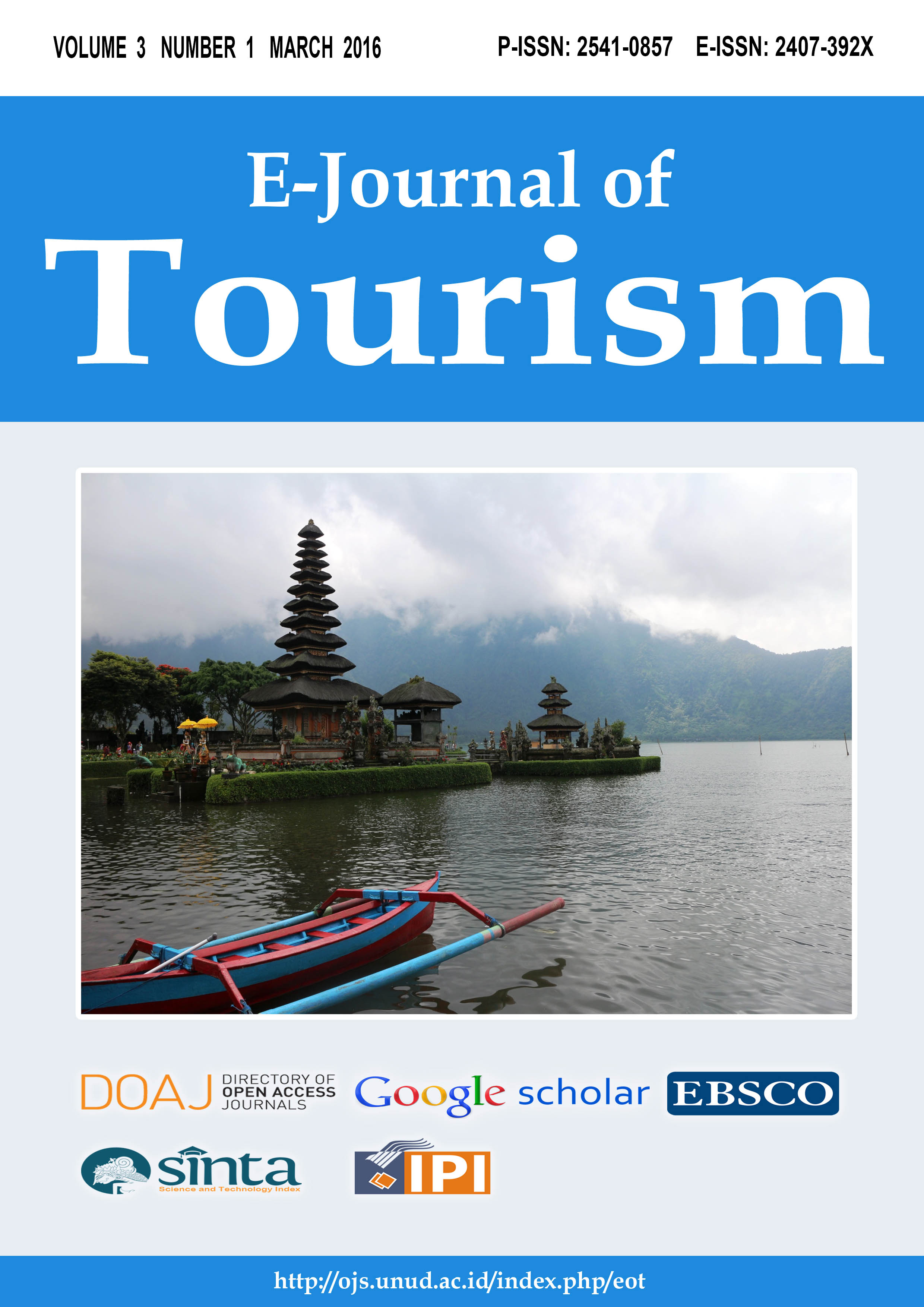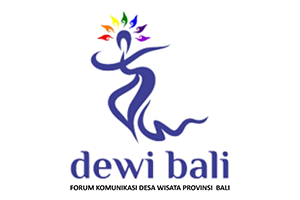Assessment of Guests’ Perception in Implementation of Green Hotel in Supporting Sustainable Tourism
Abstract
Tourism industry faced by threats in implementing sustainable tourism development. UNEP (United Nation Environmental Programme) designs the concept to gain sustainable development through the program called the greening of industry which includes minimization of energy used, reducing green house emission, water consumption efficiency, waste management, reducing loss of biological diversity, and preserving cultural heritage. Dependency of tourism industry in using energy will impact in global warming and climate change which will lead to sustainability of the future of tourism development. The research was designed to assess guests’ perception on implementation of green hotel in supporting sustainable tourism in Bali. Research was undertaken in DKP hotel which is located in Kuta, Bali in the periods of April-June 2011. The hotel was choosen because DKP hotel is one of the hotels in Bali that has implemented the concept of green hotel in the hotel operational and was awarded as Green Hotel Award in the year of 2010. Sample was designed based on the minimum criteria on using Structural Equation Modelling (SEM). Respondents were guests who stay in the hotel and were willing to be interviewed and fill-in the questionnaires. The number of respondents were 121. Assessing guests’ perception was undertaken based on five-point Likert rating scale and relationship between variables which express level of concern of hotel management on the environment conservation, social-culture preservation and economic development were analyzed by using Software AMOS Version 23. The results show that assessment of guests’ perception in implementation of green hotel in the hotel operational through conservation of environment and preserving social and culture and its impact on economis development was positip and has resulted in supporting sustainable tourism. Environmental conservation awarenesss has been implemented through energy and water efficiency, waste management has been applied by implementing reuse and recycle programs. Social concern has been undertaken through CSR programs.
Downloads
Keywords

This work is licensed under a Creative Commons Attribution 4.0 International License.
The copyright of the received article shall be assigned to the journal as the publisher of the journal. The intended copyright includes the right to publish the article in various forms (including reprints). The journal maintains the publishing rights to the published articles.




















